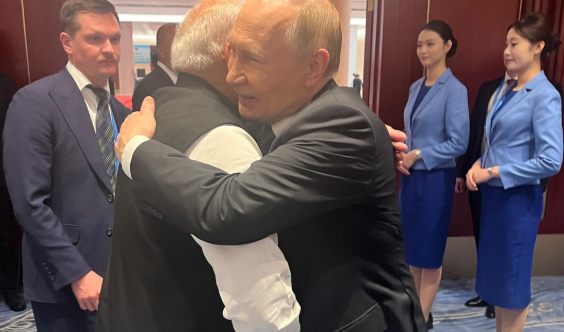
On September 7, 2025, Moscow officially cleared India’s proposal to open new consulates in Ekaterinburg and Kazan, marking a significant step in strengthening the deep-rooted India-Russia relationship. The development, widely celebrated on X, expands India’s diplomatic presence in Russia beyond its existing embassy in Moscow and consulates in St. Petersburg and Vladivostok. The move aims to boost trade, cultural exchanges, people-to-people ties, and streamline consular services for the growing Indian diaspora and student community in Russia.
Why Ekaterinburg and Kazan?
The choice of Ekaterinburg and Kazan as consulate locations is highly strategic, considering both cities’ economic and geopolitical importance.
Ekaterinburg, located in the Ural Mountains, is one of Russia’s leading industrial and economic hubs. As the administrative center of the Sverdlovsk region, the city is a powerhouse in metallurgy, heavy machinery, and manufacturing. India is keen to enhance cooperation and investment in these sectors. Ekaterinburg’s position as a bridge between Europe and Asia also aligns with India’s strategic objective of strengthening its role in Eurasian economic and security cooperation. Its status as a key node in Russia’s federal economic structure makes it an ideal destination for expanding industrial and technological partnerships.
Kazan, the capital of Tatarstan, is another vital center chosen for India’s diplomatic expansion. The city has a strong petrochemical industry, producing around 32 million tonnes of crude oil annually with reserves exceeding one billion tonnes. Beyond its economic significance, Kazan is a renowned educational hub, home to Kazan Federal University where many Indian students pursue MBBS degrees. The consulate will play a crucial role in fostering academic collaborations with Indian universities while also simplifying visa processes for Russian tourists visiting India. Kazan is also known for hosting the Russia-Islamic World: KazanForum, a platform where Indian representatives regularly participate, reflecting strong economic and cultural engagement.
Diplomatic and Economic Context
The opening of these consulates is in line with India’s broader foreign policy strategy to enhance its diplomatic outreach worldwide. Foreign Secretary Vinay Kwatra, ahead of Prime Minister Narendra Modi’s Moscow visit in July 2024, emphasized India’s commitment to expanding its presence in Russia. This move builds on the “Special and Privileged Strategic Partnership” between the two countries, formalized in 2010, which encompasses politics, defense, energy, trade, and culture.
Bilateral trade has seen robust growth, reaching $68.7 billion in the 2024-25 financial year, a significant jump from just $1.4 billion in 1995. Both sides aim to scale this further to $100 billion by 2030, with oil, gas, pharmaceuticals, and manufacturing as key focus sectors. Indian investments in Russia currently stand at $16 billion, largely in hydrocarbons, while Russian investments in India are valued at $20 billion, mainly in energy and infrastructure. The new consulates are expected to facilitate smoother business interactions, help resolve trade deficit concerns, and improve market access.
People-to-people and cultural ties also stand to benefit. With Kazan already hosting many Indian students, the new consulate will provide direct support and make visa processes easier for tourists. Ekaterinburg’s industrial hub status will enable more educational and technical cooperation. India’s cultural presence in Russia, through initiatives such as the Jawaharlal Nehru Cultural Centre in Moscow and Hindi departments in Russian universities, will be further complemented by the new consulates.
Key Developments in Kazan Consulate
Preparations for the Consulate General of India in Kazan are already underway and the office is expected to open within 2025. Deputy Ambassador of India to Russia Nikilesh Giri and Tatarstan’s Plenipotentiary Representative Ravil Akhmetshin have been coordinating the setup. Gitika, currently serving as Second Secretary at the Indian Embassy in Moscow, is expected to take charge as the first Consul General in Kazan. To further strengthen economic engagement, a Tatarstan-India business forum titled “TIME: Tatarstan-India. Mutual Effectiveness” will be held on October 9, 2025, at Kazan’s IT Park.
Broader Implications
The establishment of new consulates underscores the resilience of Indo-Russian ties amid global geopolitical challenges. Despite Western sanctions on Russia following the Ukraine conflict, India has continued to maintain strong energy and defense cooperation with Moscow. Russia, on its part, has consistently supported India’s bid for a permanent seat at the UN Security Council, while both nations collaborate actively within BRICS and other multilateral platforms.
These consulates will not only strengthen diplomatic outreach but also improve practical services like visa issuance, passport support, and assistance for students and the Indian community living in Russia. They are also expected to become important hubs for business forums and cultural exchanges, deepening the scope of bilateral relations.
Challenges and Considerations
While the move is highly positive, challenges remain. The annulment of a tendering process for outsourcing consular services highlights operational hurdles that India must overcome. Moreover, India will need to continue balancing its relations with both Russia and the West, as growing geopolitical pressures make diplomacy more complex.
Conclusion
The opening of Indian consulates in Ekaterinburg and Kazan represents a landmark step in Indo-Russian relations, reflecting the shared commitment to expanding trade, cultural exchanges, and people-to-people ties. For India, it signals a stronger presence in Russia’s key industrial and cultural regions. For Russia, it opens new channels of cooperation with one of the fastest-growing global economies. As these consulates take shape in 2025, they are set to become cornerstones of the India-Russia partnership, paving the way for deeper collaboration and a more interconnected future.




